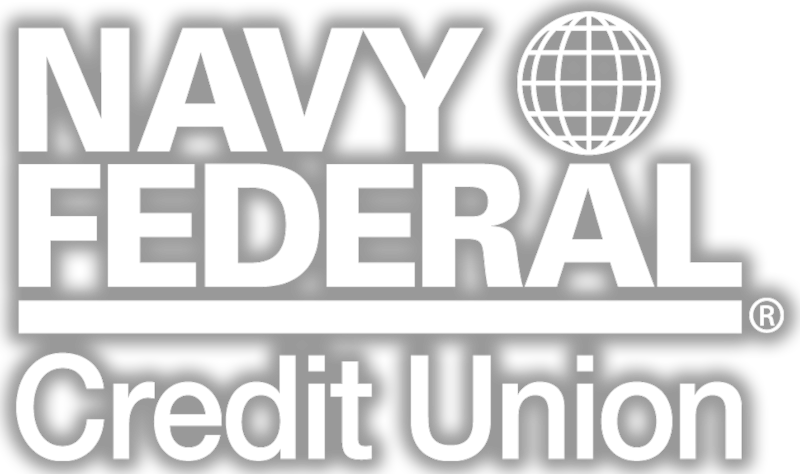If you want to improve your financial situation, then there’s no time like the present. But focusing on an end goal can seem daunting if you’re just getting started.
The easiest way to set course for financial success is to imagine a series of steps. By completing each step, you can develop great habits and confidence with your money.
Step one: Know your numbers
Research tells us only one in three Americans keeps a household budget. So if you’re not budgeting, you’re not alone.
“Budgeting is like creating a financial diet,” said Kevin Driscoll, vice president of advisory services at Navy Federal Financial Group. “When it’s in writing, you’ll realize where you can cut costs and where you should be focusing your attention to reach your goals.”
Most people start by tracking their monthly expenses such as:
- Income
- Debt
- Recurring expenses like your cable bill, taxes, insurance and any subscriptions
- Routine costs like gas, groceries, clothing, haircuts, etc.
- Non-routine costs like entertainment, vacations, birthdays, holidays, etc.
Debt, especially on credit cards, can be costly when interest payments add up. In fact, the average American household pays more than $900 a year in interest alone on their credit cards. “Keep tabs of where you’re paying the most in interest. Start there and make continued efforts to pay those debts,” Driscoll added.
Step two: Protect what’s yours
Life Insurance plays an important role in financial planning. It’s not everyone’s favorite topic, but it can go a long way for your legacy and the life you build for those you care about.
Your decision to get covered gives you peace of mind on big ticket items like your mortgage, or funding college education. You are essentially paying into a policy that protects your family and their future.
Today’s life insurance products are designed to make this easy for you. You can choose a policy that’s affordable and that makes sense for your situation.
Step three: Fund your retirement
According to the US Government Services Administration, you’ll need about 80 percent of your pre-retirement income once you officially retire. Meaning, if you currently make $50,000, you’ll need at least $40,000 per year in retirement, and you could eventually need more. So, where do you start?
Whether you’re young, middle-aged, or approaching retirement, your first stop is your TSP or 401(k). These growth based accounts give you the power of compounded returns. The more you contribute, the more your savings can grow. If you don’t have access to a workplace plan, or you’re looking for another stream of income in retirement, consider opening your own IRA.
“It’s easy to underestimate when it comes to retirement,” said Driscoll. “There are so many variables when it comes to planning. Just because you’re retired doesn’t mean you’re exempt from taxes, or healthcare costs, to name a few. I’d encourage everyone to meet with a financial advisor at some point to discuss their retirement plan.
Step four: Consider investing
Investing is a great way to build wealth, and by now there’s a good chance you have a relationship with your bank or credit union. That’s a great place to start.
If you prefer to work with a person, visit a branch or call your financial institution. If you prefer to do it yourself, there are DIY investing options.
There are a few things you need to know before you start. First and foremost, there are no guarantees with investing as all investments carry some degree of risk. However, history shows that long term investing usually yields a return. This is something you’ll want to read up on before you start.
Another important aspect of investing is diversification. Essentially, you don’t want to put all your eggs in one basket. Diversify assets between stocks, bonds, cash and other investments.
Staying on track
“Your first financial plan is important, but it won’t be your last. As you progress through milestones like starting a family, getting a new job or moving, your situation will change. These are good reasons to take a look at your plan and adjust accordingly,” said Driscoll.
If you are unsure, seek help from a financial advisor. Your financial well-being and future are important, so enlisting the help of a professional is a great idea. With a confident outlook on your money, you’ll be ready to take on opportunities to improve.
Nondeposit investment and insurance products are offered through Navy Federal Financial Group, LLC, (NFFG) and through its subsidiary, Navy Federal Brokerage Services, LLC (NFBS), a member of FINRA/SIPC and an SEC registered investment advisory firm. Brokerage and advisory products are offered through NFBS. These products are not NCUA/NCUSIF or otherwise federally insured, are not guaranteed or obligations of the credit union, are not offered, recommended, sanctioned, or encouraged by the federal government, and may involve investment risk, including possible loss of principal. 1-877-221-8108.






